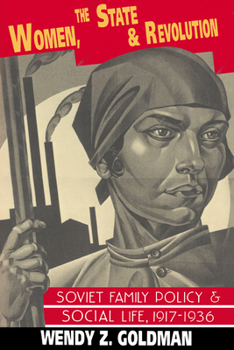Women, the State and Revolution: Soviet Family Policy and Social Life, 1917 1936
(Part of the Cambridge Russian, Soviet and Post-Soviet Studies Series)
Select Format
Select Condition 
Book Overview
When the Bolsheviks came to power in 1917, they believed that under socialism the family would wither-away. They envisioned a society in which communal dining halls, daycare centers, and public laundries would replace the unpaid labor of women in the home. Yet by 1936 legislation designed to liberate women from their legal and economic dependence had given way to increasingly conservative solutions aimed at strengthening traditional family ties and women's reproductive role. This book explains the reversal, focusing on how women, peasants, and orphans responded to Bolshevik attempts to remake the family, and how their opinions and experiences in turn were used by the state to meet its own needs.
Format:Paperback
Language:English
ISBN:0521458161
ISBN13:9780521458160
Release Date:November 1993
Publisher:Cambridge University Press
Length:368 Pages
Weight:1.21 lbs.
Dimensions:0.9" x 6.0" x 9.0"
Customer Reviews
1 rating
Two thumbs up!
Published by Thriftbooks.com User , 23 years ago
The book provided an excellent insight as to the troubles facing women, children and families following he Bolshevik revolution. The book is relevant for anyone studying gender issues in the early 20th century as well as those interested in Russian history. The book is extremely easy to read; however, it does at times get bogged down in overuse of statistical data. The data fully supports the author's conclusions, but at times the smooth flow of the book is interrupted by too many examples. Overall, the book was extremely easy to read and provided good historical and analytical coverage of the problems facing women, children and families in post-revolutionary Russia.






